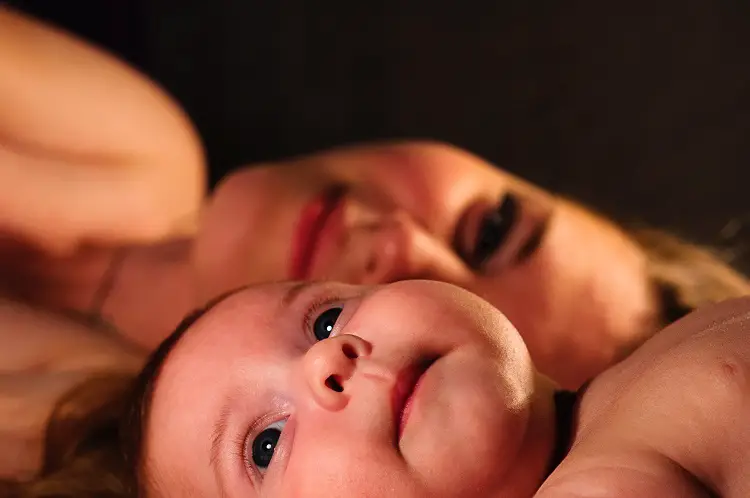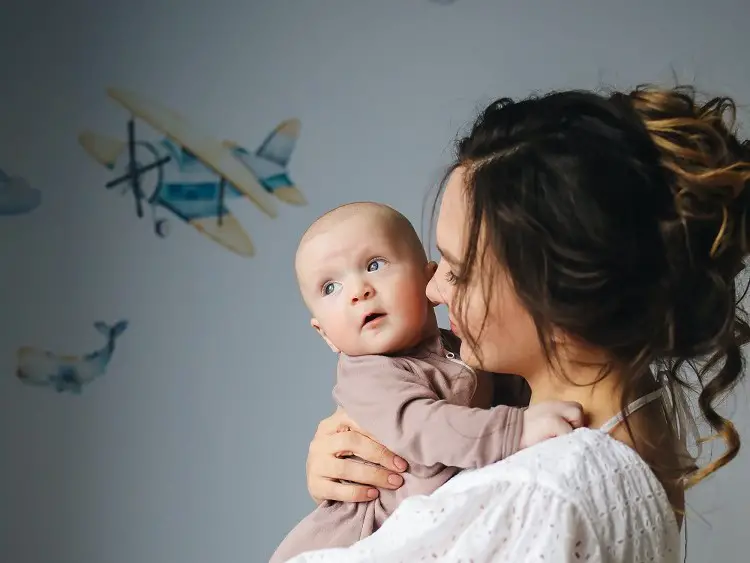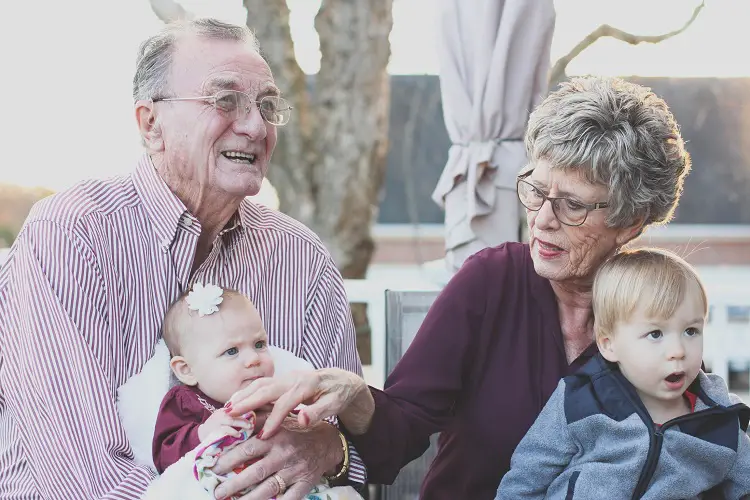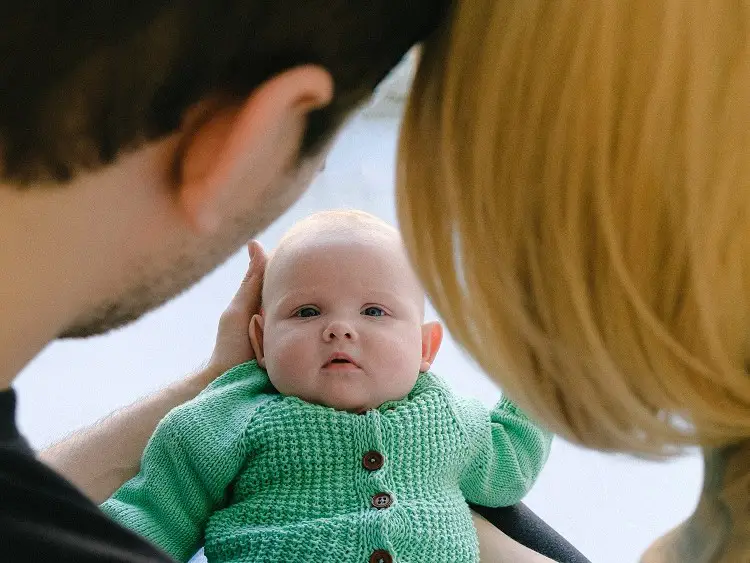As a new mom, having your baby in your arm while your little bundle of joy stares back at you is heavenly. Those pains of the nine months journey are forgotten and the joy of birth replaces the pains of childbirth.
Sometimes while a baby is growing they develop some cognitive behavior, and one of them is being able to recognize his or her mother from others.
But the question is how soon can a baby recognize his mother after birth? Well, before we do that let us discuss some interesting things you may not know your baby can do.
Interesting Things You May Not Know Your Baby Can Do

Scientific researchers have shown that newborns can possess a formidable cognitive skillset and, in most cases, can pull off great feats. Here are the six interesting things you may not know your baby can do.
1. Your baby can sense emotion
Babies’ are sensitive to emotion, and by the time they are just a few months old, they can recognize the difference between a happy mood and a sad one. Babies tend to exhibit this trait unknowingly during their first birthday, the baby can even sense how other people feel.
A study was carried out at the University of California at Berkeley, where a team of researchers placed two closed boxes in front of 1-year-old infants.
As the infants watched as one adult peered into one box and showed satisfaction, then peeked into another and seemed unhappy. Then she offered the babies a chance to choose between the two boxes. Almost all the babies’ chose the “happy” box.
Even at birth, the baby can sense you by smell and imitate facial expressions. Stick out your tongue and your baby will do the same thing. And by the time they clock three months, your baby should be able to understand your role in her life as a mother.
2. Your baby can talk with their hands
Babies’ can learn sign language even before they begin to speak. And this is very beneficial because they help a baby to tell you what he’s seeing and hearing. This could either be a plane flying or a dog barking outside says Linda Acredolo, a parenting adviser.
Also as babies clocks 9 months of age, they can guess the emphasis of words and phrases in his or her language. And by the time they clock one year, your baby can figure out what to do with objects such as (holding a bottle, spoons, phones, etc) by watching how other people use them.
3. Your baby can master math
Babies have a basic knowledge of subtraction. A study which was carried out at the Ben-Gurion University of the Negev had 6-9-month-old babies’ watch a puppet show with two characters.
Researchers then take out one doll and closed the curtain; when they reopened it, the same doll remained. Then they did the experiment again and changed the ending: two dolls appeared when the curtain reopened the babies’ stared for a while indicating they understood that two minus one doesn’t equal two.
As your baby clocks 2 months of age, your baby tends to understand that her behaviors impact the world around her. She cries, and you appear immediately. By the time she clocks 18 months of age, she sees others have contrasting preferences.
4. Your baby can speak certain languages
Babies’ have the innate ability to learn a second language. This is quite interesting, reports have shown that being multi-lingual encourages flexible thinking, boosts memory, and helps the child’s concentration.
Babies tend to make sounds intending to show his/her pleasure or displeasure by the time they clock 6 months of age.
5. Your baby can react to music
Your baby was born to rock. Research has shown that a 3-month-old baby can distinguish between one type of rhythm and another. Recent scientific research has also shown that babies respond to the rhythm of music by throwing their arms and body.
6. Your baby can recognize faces
A research carried out in England at The University of Sheffield that 6-month-old babies are far more gifted than adults at recognizing individual faces among a group of people.
Since your baby depends on you for everything, it may not be long before they recognize your face after birth. But how soon can this happen?
Read Also: How To Stop Baby From Pulling and Eating their Hair
How Soon Can A Baby Recognize His Mother?

Babies tend to recognize their mother’s voice immediately after birth and this aid in recognizing the face of their mom.
Right from the womb, research has proven that your baby can recognize your voice and even that of his dad, so once they are born they can distinguish when they are being spoken to by their mom or their dad.
Bonding and recognition happen faster in breastfed babies because as the breastfeeding session is going on, your baby becomes familiar with your unique scent.
However, there’s no unanimous agreement as to when a baby can recognize the mother, some research has shown that recognition of a mother by a baby may take a few weeks, while others say it could take up to two months.
This is because at birth, your baby cannot see more than 8 to 12 inches clearly and the reason is not farfetched, they are born with blurry vision that gets cleared as they grow.
Some studies have insisted that your baby can recognize you within few days after birth while some have insisted that it could take up to two months.
Other studies stated that recognition by your baby may take up to a week because your baby depends on you for everything and that dependency aids in face recognition.
One certainty is that your baby’s vision improves continually throughout their first year and before they clock 8 months of age, they tend to recognize you and the room even more.
A newborn is safe and at peace in the company of the mother because the scent and voice are familiar and you do realize that during the day.
Since your baby spends most of the day with you it brings about an increase in bonding and also aids in face recognition. This helps explain the fact that babies recognize their mother’s face first.
Your baby can also recognize your face after birth quickly through the help of your smell and sound too. These two play a major role in how soon a baby can recognize his mother.
Babies’ recognition through smell is aided by recognition of the amniotic fluid by the baby right from the womb and this fluid is unique to individuals. Since the amniotic served as a cushion for your baby, while your baby was still in gestation.
Normally, your baby recognizes the smell of that fluid which helps the baby to be able to detect and recognize smell from the mother which in turn hastens the recognition of the mother’s face.
Additionally, it seems that babies are drawn to the sense of amniotic fluid, which has a particular odor which researchers believe may help in the interaction between parent and newborn.
Read Also: Newborn Safety Checklist For First Time Parents
When Can Babies Begin to Recognize Their Fathers?
Unfortunately, there are no studies that analyze when babies begin to recognize their fathers. However, it has been known that babies tend to respond and recognize their father’s voice right from the womb.
This is why many health practitioners recommend that the would-be-dads should talk to their babies when in the womb. Since babies’ vision is blurry after birth, they are most likely to recognize both their parents’ faces after some weeks.
Read Also: When Do Babies Get Eyebrows
When Can a Baby Begin to Recognize People

Again, there are no studies that analyze when your baby can identify people. You may notice a smile on your baby’s face when they are with people they know or are familiar with.
But this can take some time to happen since they don’t get to see these faces every day, apart from those they spend quality time with, like their parents.
Babies tend to recognize their mother’s face very early in life even before recognizing other things. Therefore, it may take a couple of months or even a year before your baby can recognize other faces including your family members and close friends.
The fact remains that the more frequent your baby sees a face, the faster the recognition of that face, so it is normal if your baby recognizes some faces easier than others.
Related Posts:
- Newborn Night Feeding Tips For First Time Moms
- How Long Should Babies Wear Mittens
- Dos and Don’ts of Raising a Child
- When Do Babies Start Eating Solid Baby Foods
What About Facial Looks When It Comes to Recognizing People?
As an adult, you sure get attracted to good-looking people more than haggard and gaunt-looking person and the same thing applies to babies because they find beautiful people more appealing.
You may find your baby gets attracted or stare longer at faces that he/she may find more attractive than others. This is simply because babies are also attracted by certain kinds of faces.
Effects of Unfamiliar Faces
A baby is a miniature adult and most times do what adults do in their little way, though their actions may not be as elaborate as that of an adult, sure the reactions are similar.
You may have noticed your baby feeling relaxed, happy, and playful in the presence and company of family members and those his/she is quite familiar with.
However, the reverse may be the case when they find themselves in the company of strangers or faces they are not familiar with.
This is simply because babies’ are quite comfortable and cozy with familiar faces and is wary of unfamiliar faces hence the feeling of apprehension is exhibited and you wouldn’t blame them, this is just normal and impulsive.
Unfamiliar faces or strangers may make your baby inquisitive and apprehensive, making him or her behave strangely, but do not misunderstand your baby’s feeling of apprehension, or being scared, the unfamiliar face is simply making him/her uncomfortable.
If you find out that your baby is not recognizing people and places by the time they clock 4 months of age, you may want to speak to your pediatrician about it. It is best advised to bring any susceptible vision issues to your health provider’s notice at the early stage, for quick medical intervention.
We hope this article has given in-depth discussion to answer the question of how soon can a baby recognize his mother. As first-time parents, it’s ok to be anxious to know how soon your baby will be able to recognize you.
During this joyful period, the best thing you can do as a parent is to have patience – by the time your baby is a few months old, you will see your little bundle of joy staring and smiling at you!
